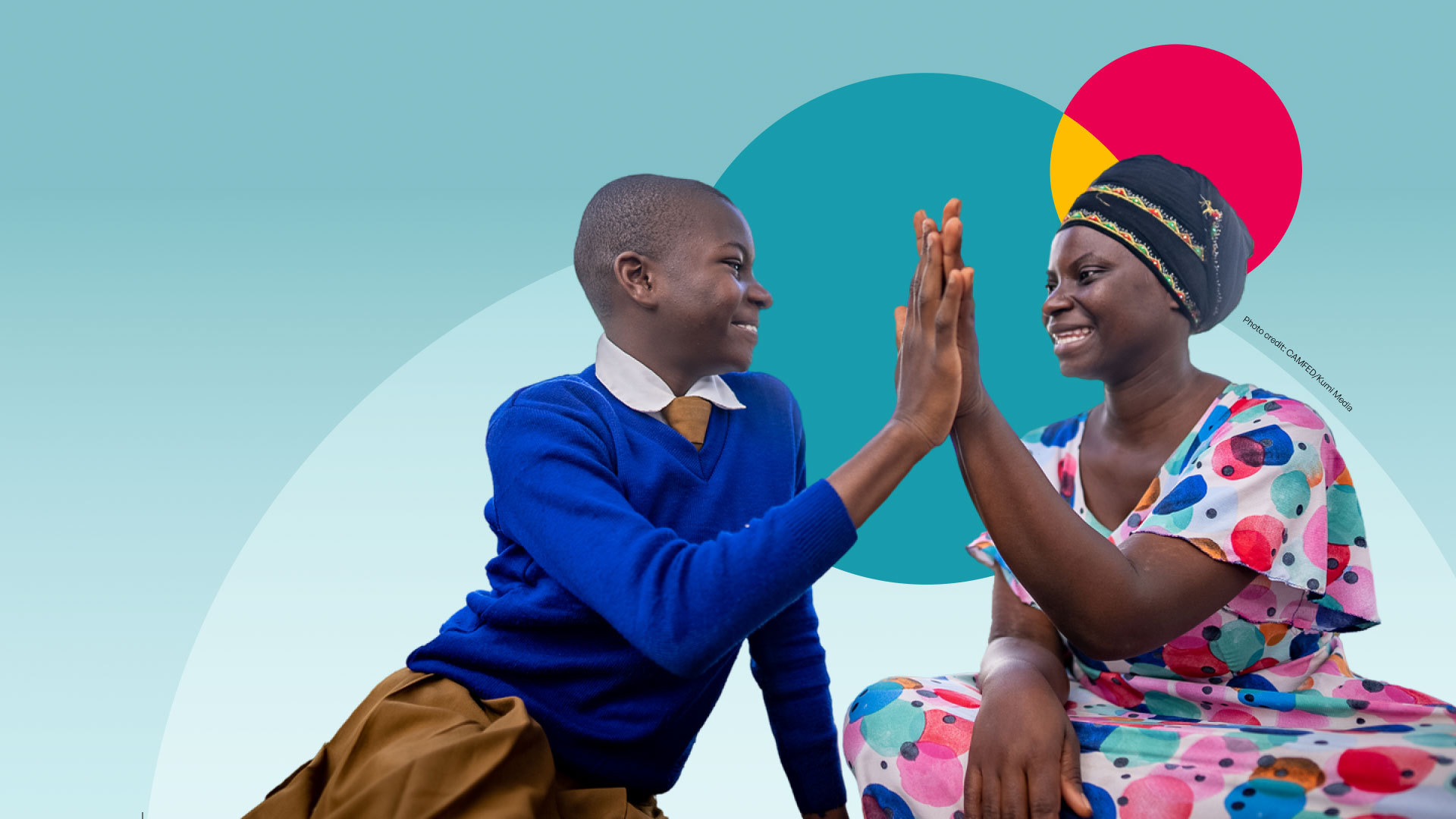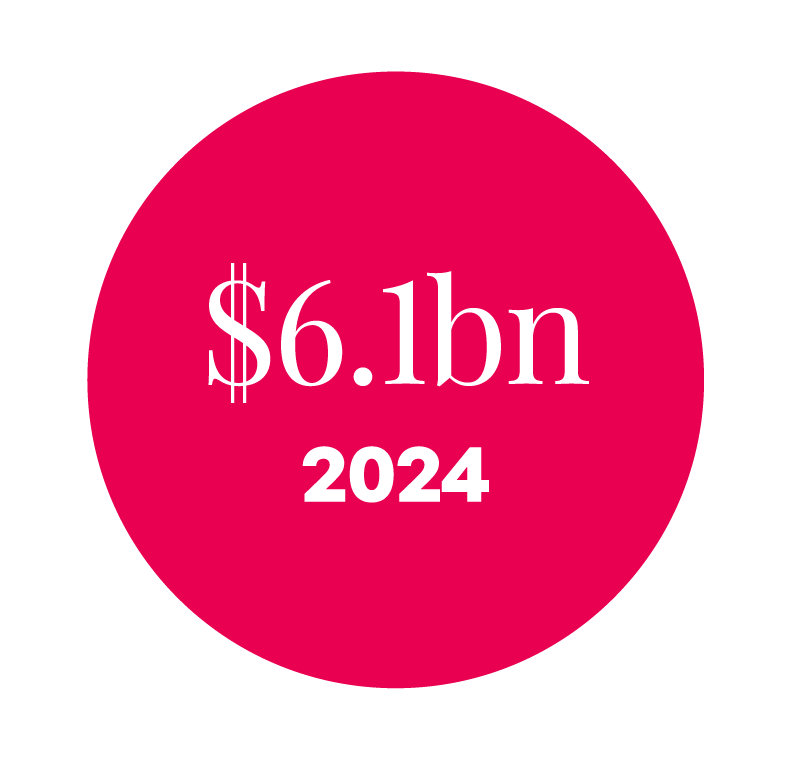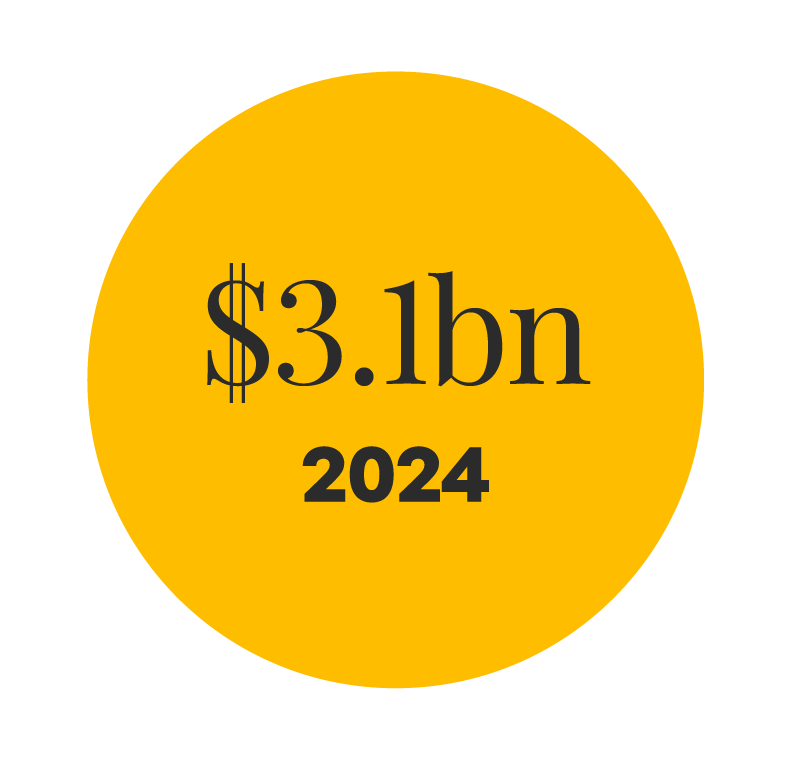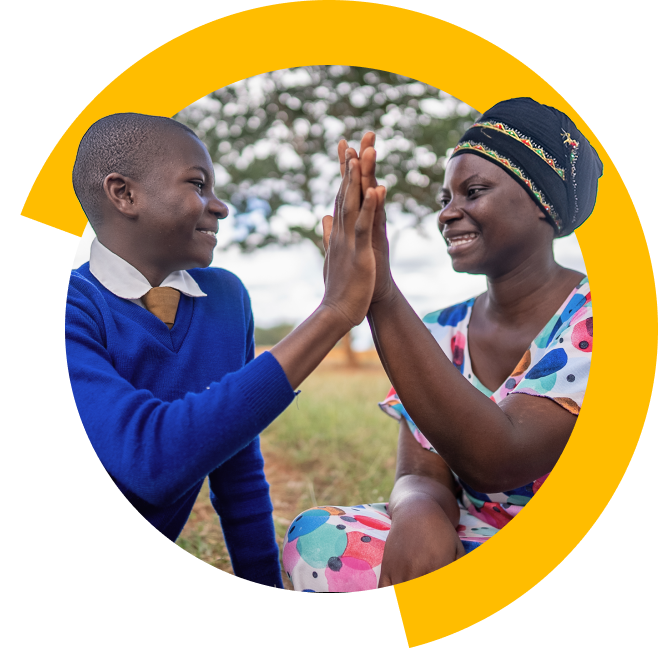




In 2024 two sets of numbers tell the story of our work. There are the numbers we put in: our investment in the future.
And then there are the numbers that come out: the tangible benefits to people.
These are a selection of impact numbers from 2024 across the regions and sectors in which we work – some are the direct result of programmes we’ve funded and some are the cumulative result of decades of work from many partners.
This increased access has been a result of amazing work from implementing partners, supported by CIFF and the Global Fund’s catalytic HIV Prevention Fund.
Learn More >This is the result of Food4Education providing nutritious school meals. To expand the school feeding model further, CIFF is working with the African Development Bank to establish the Ending School Age Hunger Fund.
Learn More >This is a result of the Skill Impact Bond, an innovative public-private partnership that is transforming the skilling and employment landscape in India. Led by the Government of India, CIFF is part of a consortium supporting this pioneering initiative.
Learn More >This is the result of Rajpusht, a government-led initiative, which was initially rolled out in 2021 with support from CIFF. An independent evaluation conducted in 2024 across four vulnerable districts in Rajasthan found that the cash transfer programme, combined with social and behaviour change communications, led to a 20% relative reduction in low birth weight.
Learn More >This reduction in emissions is the result of years of strong government leadership on climate. It has been accelerated by consistent technical support from climate organisations and a strong mandate from civil society and the public, which CIFF is proud to support.
Learn More >The Child Nutrition Fund has enabled the procurement of $55 million worth of nutrition commodities by matching domestic resources. Most of this funding has gone towards life-saving treatment such as Ready to Use Therapeutic Food (RUTF) for children suffering from severe acute malnutrition.
Learn More >




To reach large-scale, real-world outcomes, CIFF relies on strong partnerships with a range of organisations. In 2024 we celebrated a wide variety of new partnership announcements, bringing together financing, resources, and focus to the world’s most pressing needs.
In 2024 the Global Methane Hub – backed by CIFF and a coalition of philanthropic partners – secured major development finance partnerships and funding commitments for billions of additional dollars for methane action. These include IFAD's Reducing Agriculture Methane Program (RAMP), IDB's Too Good to Waste, and the World Bank's CH4D program, which should triple multilateral development bank financing for methane mitigation.
Additionally, the Global Methane Hub announced over $300 million in new philanthropic funding for methane reduction projects worldwide, to reduce global methane emissions 35% by 2030 and 50% by 2050.
A new coordinated partnership was announced between CIFF, the Gates Foundation, The Global Fund and the United States President’s Emergency Plan for Aids Relief (PEPFAR), to accelerate access to game-changing long-acting injectable HIV prevention.
This effort will rapidly provide affordable and equitable access to lenacapavir for HIV pre-exposure prophylaxis (PrEP) to significantly reduce Global HIV infections.

In June, CIFF partnered with UNICEF’s UK Soccer Aid campaign to match the public’s donations whilst raising the visibility of the issue of malnutrition to the wider public.
The $10 million of funds raised through this partnership were programmed towards a new Child Nutrition Fund programme to help provide nutrients to pregnant women.
In September 2024, CIFF renewed its partnership with the Rajasthan government for another five years. At the MoU signing, Sir Chris Hohn reaffirmed CIFF’s commitment to ensuring a healthy and inclusive environment for the state's children.
Our partnership with Rajasthan since 2015 has delivered significant impact: 1.5 million pregnant women have received better nutrition and healthcare, while 5.5 million women accessed safe childbirth services. Additionally, 1 million girls gained improved access to education and livelihood opportunities. Many of these successful programs that began in Rajasthan have now been scaled across India.
CIFF took part in the first ever ministerial on Ending Violence Against Children in November 2024.
During the historic summit, 100 Governments pledged commitments to address violence against children and CIFF pledged to commit $125 million over the next 5 years, into programmes to help in addressing the issue. This includes a significant effort of working in partnership with governments that are committed to ending child marriage.
In 2024, CIFF was part of a collaboration which helped establish the Beginnings Fund, an initiative which is working with African governments to strengthen maternal and newborn healthcare, aiming to prevent over 300,000 avoidable deaths by 2030. The Beginnings Fund officially launched in 2025, with the support of ELMA Philanthropies, the Gates Foundation, Delta Philanthropies and the Mohammed Bin Zayed Foundation for Humanity.


The wide range of work we do aims to support the foundations which are needed in this world to allow each and every child to grow up safe, healthy and equal.

As a global independent philanthropy, central to our approach is investing in locally-led solutions, which centre the priorities of the communities we work with. We collaborate across our four regions, with five offices, to bring a wide range of perspectives to the work that we do.
Achieving our charitable objectives will only be possible if we nurture our people and our culture. That’s why our aspiration is to build world-class talent and capability, providing an environment where all members of the CIFF family can be at their best and realise their full potential.
Our 2024 Annual Report looks at our efficient and effective resourcing capability and performance building, empowering our talent, diversity, equity and inclusion as well as looking ahead to 2025.
CIFF colleagues, alongside partners, made 2024 a year of progress amidst a year of uncertainty and change. If you are interested in potentially joining the CIFF team, keep an eye on our careers page as vacancies will be made visible here.
